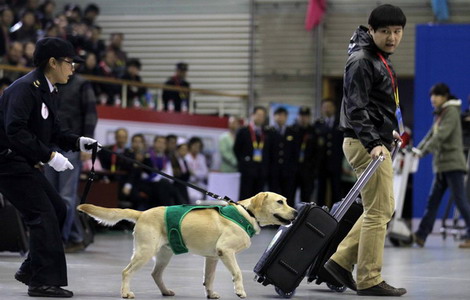Republican assails Obama 'reset' with Russia
Updated: 2011-10-26 09:04
(Agencies)
|
|||||||||||
* House speaker warns of Putin return to presidency
* Boehner wants pressure on Moscow over Georgia, Iran
* Says Obama has downplayed Russia's human rights abuses
WASHINGTON - The top Republican in the US Congress on Tuesday assailed President Barack Obama's "reset" policy with Russia as contrary to US interests and values, and urged him to rethink his approach in light of Vladimir Putin's impending return to the Kremlin.
US House of Representatives Speaker John Boehner, in a rare speech on foreign policy, warned that Russia's response to Obama's much-vaunted outreach was "nothing short of an attempt to restore Soviet-style power and influence."
Pushing for a tougher line, Boehner pressured Obama not to agree to Russia's accession to the World Trade Organization until Moscow settles a territorial dispute with neighboring Georgia, a US ally, stemming from their brief 2008 war.
In an address to the conservative Heritage Foundation think tank in Washington, he also urged the administration to do more to "compel" Russia to curb its ties with Iran, particularly on nuclear and missile technology, and called for a stronger effort to get Moscow to address human rights concerns.
"The United States should insist Russia 'reset' its own policies. If those appeals require teeth, the House stands ready to approve them," Boehner said.
Taking aim at the reengagement with Russia that Obama has touted as one of his top foreign policy achievements, Boehner voiced suspicion harbored by many US conservatives over the decision by Putin, a former KGB spymaster, to reclaim the presidency next year.
"Soon, Russia will be officially led by someone known to harbor intense Soviet nostalgia," he said.
Boehner's speech, at a time when Republicans are deadlocked with Obama over domestic policy, sought to raise fresh doubts over the Democratic president's global leadership and broaden the assault on his record beyond his economic stewardship.
There was no immediate White House reaction.
But polls show foreign policy is likely to gain little traction in the 2012 election campaign, when concerns over the stagnant US economy and high unemployment are expected drive voters' decision whether or not to give Obama a second term.
PLAYS BALL WITH 'DANGEROUS REGIMES'?
Boehner said that since Obama took office nearly three years ago, Russia "has been the beneficiary of American outreach and engagement."
He said Russia, in response, has "continued to expand its physical, political and economic presence," uses its vast energy resources as a political weapon and "plays ball with unstable and dangerous regimes."
With Putin -- who held the presidency from 2000-2008 -- apparently assured of returning to office in the March election, Boehner said: "It's only appropriate to ask whether the Obama administration will now reconsider its policy toward Russia."
The White House has insisted that the reset in relations would remain on track despite the looming leadership reshuffle in Moscow.
Analysts say that even though Putin has been the power behind the scenes, his return to the presidency could undermine some progress achieved under his protege, President Dmitry Medvedev, in reconciling the former Cold War foes.
There are also doubts whether Putin, known for a more nationalistic tone and strident anti-US rhetoric, will be able to develop much of personal rapport with Obama, who worked well with the technocratic Medvedev.
"I'm not here to argue for open conflict, or against productive engagement," Boehner said, citing potential cooperation on arms control, counterterrorism and trade.
But he made clear his view that Obama's approach had neglected human rights and political reform in Russia.
"We cannot sacrifice values or get away with walling off our interests from our moral imperatives," Boehner said. "Instead of downplaying Russia's disregard for democratic values and human rights, we should call on them and call them out on it. Publicly, forcefully, frequently."
International human rights activists have criticized the administration for not taking a strong enough stand on the issue with world powers like Russia.
The White House insists that Obama speaks out when necessary while reserving some of his toughest language for private talks with leaders.
Hot Topics
Libya conflict, Gaddafi, Oil spill, Palace Museum scandal, Inflation, Japan's new PM, Trapped miners, Mooncake tax, Weekly photos, Hurricane Irene
Editor's Picks

|

|

|

|

|

|







